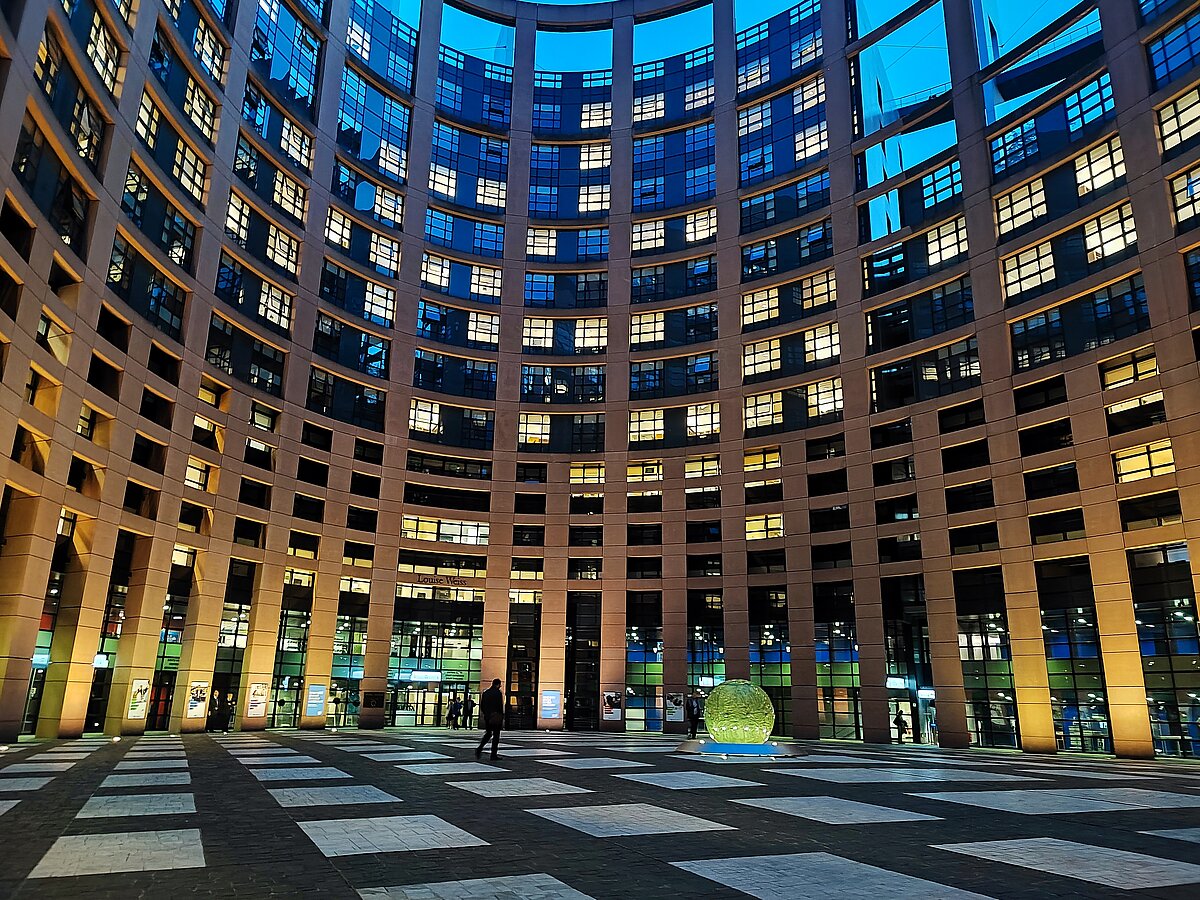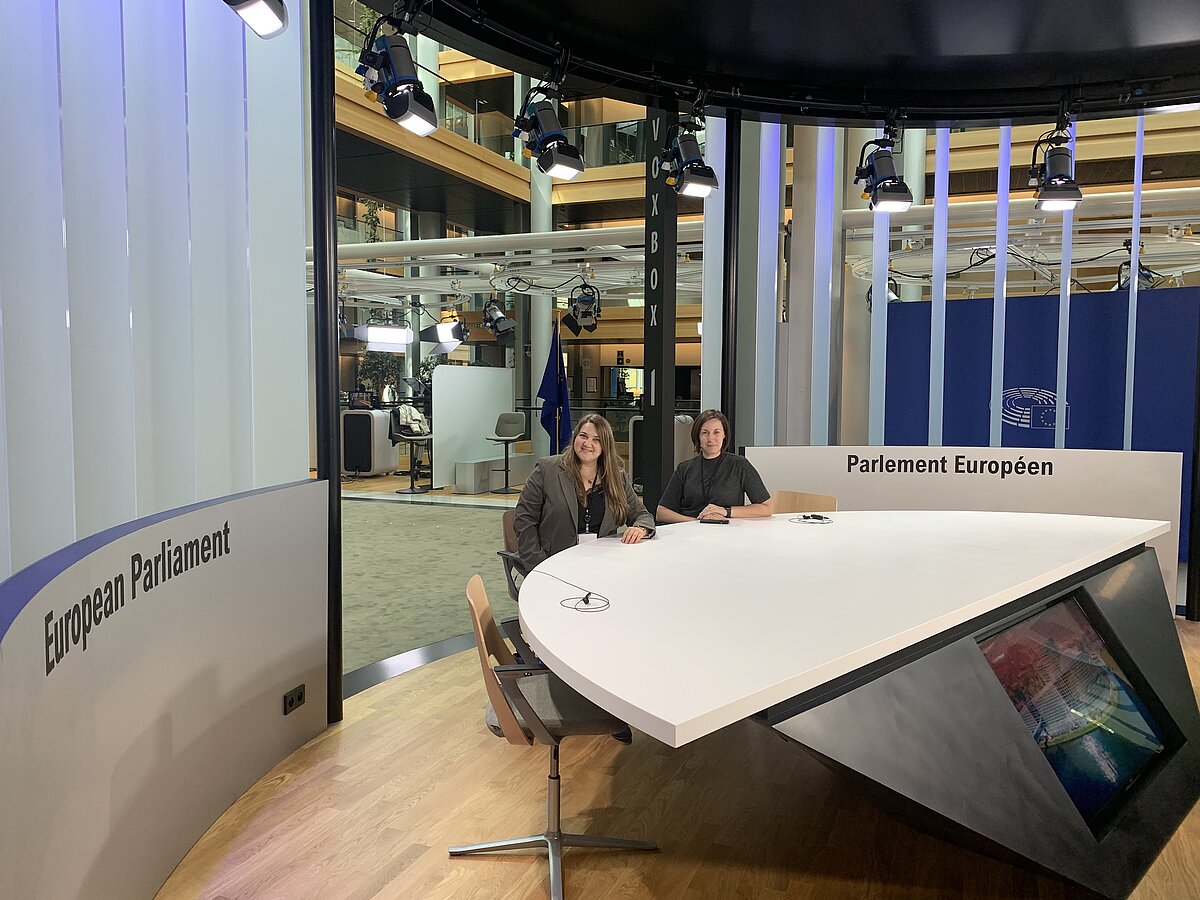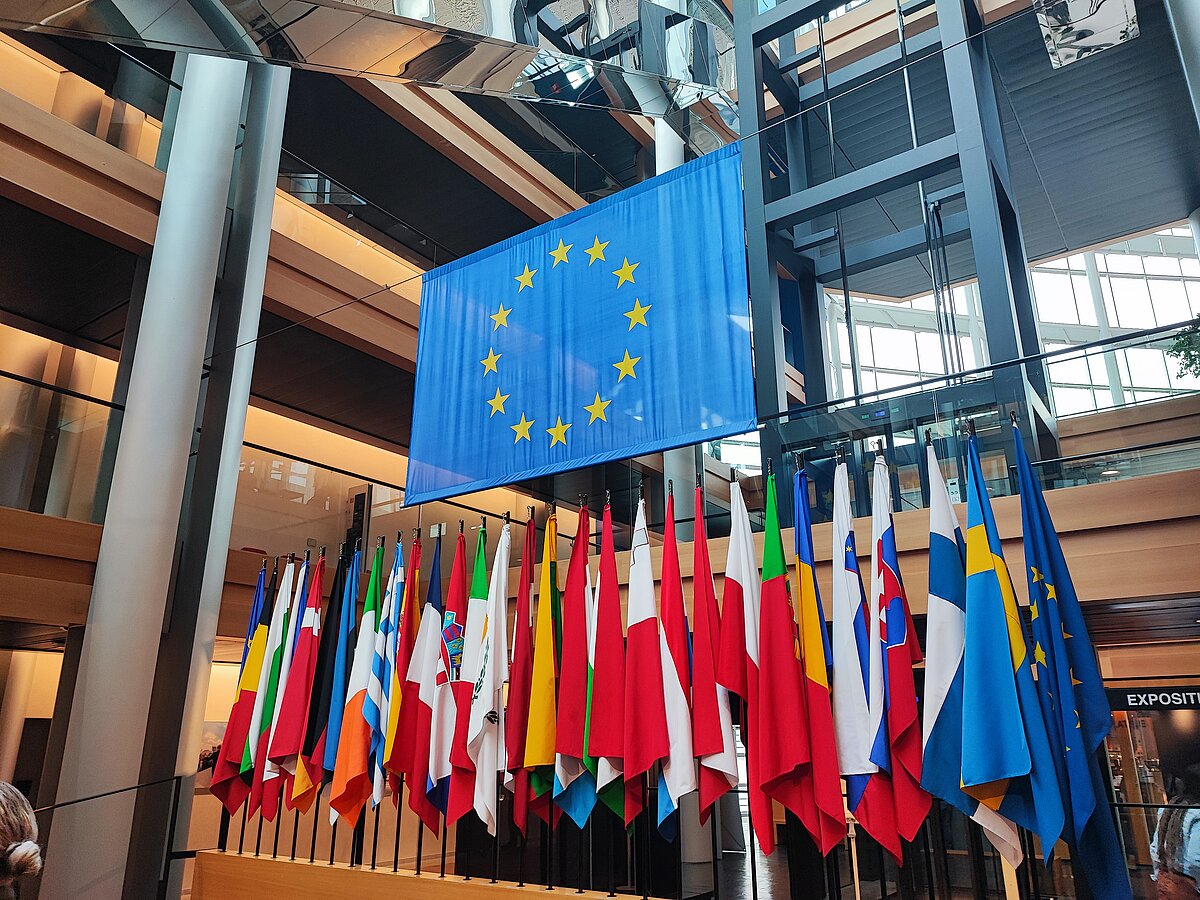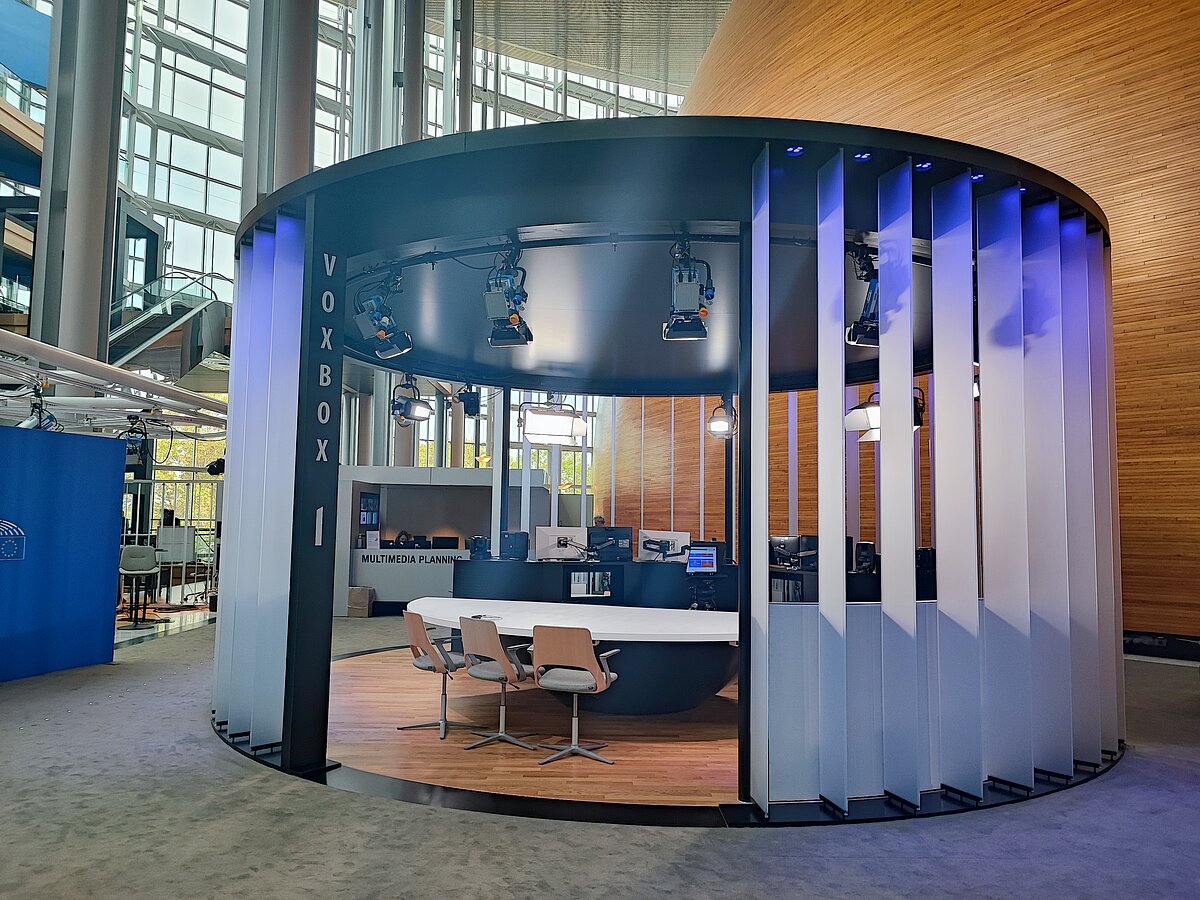
In response to the invitation of the European Parliament office in Latvia, Klinta Ločmele, assistant professor of the Communication Studies Department, participated in a seminar dedicated to freedom of speech and a journalism award ceremony at the European Parliament in Strasbourg in October.
Five years ago, Maltese investigative journalist Daphne Caruana was killed when her car was blown up. To honor the memory of the journalist and the values of the European Union, such as freedom of speech and media, a journalism award named after the journalist has been established. A seminar was also held at the European Parliament in Strasbourg, attended by the journalist's son, media representatives whose freedom of expression is currently under threat, as well as high-level officials of the European Union institutions.
The President of the European Parliament, Roberta Metsola, emphasized that true freedom does not exist without media freedom. The Vice President of the European Commission, Věra Jourová, reminded us that the lower the trust in the media, the higher the confidence in disinformation. During the seminar, it was said that money laundering, human trafficking, corruption, and other topics - although very dangerous for journalists, it is crucial that they are in the focus of investigative journalism. European Parliament Vice President Pina Picierno stated that the murdered journalist Daphne Caruana "sacrificed herself in the name of justice and truth. We must be worthy of her courage even if the voice is shaking. To be brave despite fear and strong despite weakness."
Media representatives who work in conditions of limited freedom of expression, such as independent journalists from Russia who have made a home in other countries, including Latvia, also spoke at the seminar. Dmitry Muratov (Дмитрий Муратов), the co-founder of "Novaya Gazeta" and laureate of the Nobel Peace Prize, repeatedly thanked Latvia for the opportunity for the media to operate here - in conditions of exile. Angelina Kariakina (Ангеліна Карякіна), head of the news department of a Ukrainian public broadcaster, also joined the seminar remotely. She emphasized that the number of journalists who have died in Ukraine has increased - journalists have lost their lives while doing their work as journalists, and some have fallen in battle while defending Ukraine. She illustrated what it means for a TV crew to go and report from the front line – you need a generator with you because there is no electricity, and you need to provide fuel and food reserves because the shops are not working. It is not enough to have helmets but also to provide everything else for making reports. She also highlighted an important issue - people are tired of the so-called "breaking news,” so it is very valuable for journalists, especially those who go to Ukraine from other countries, to study Ukraine more, to know the context, so that they can not only report about the war started by Russia, but also to create stories that Ukraine is not only tragedies and losses, but also, for example, strong people.
K. Ločmele also had the opportunity to go on a short tour of the European Parliament building in Strasbourg, accompanied by colleagues from the European Parliament office in Latvia. "It seems much brighter, more spacious, more modern than the headquarters of the European Parliament in Brussels. However, speaking directly about the media, I was surprised by how excellent the conditions for media work are provided - it is possible to apply for audio and video recording equipment and to use specially equipped studios with all the necessary technical devices for interviews. During the tour, we also met journalist Ansis Bogustovs in the special green media zone, who interviewed one of the members of the European Parliament representing Latvia," K. Ločmele shares her impressions.

 CONFERENCE
CONFERENCE


